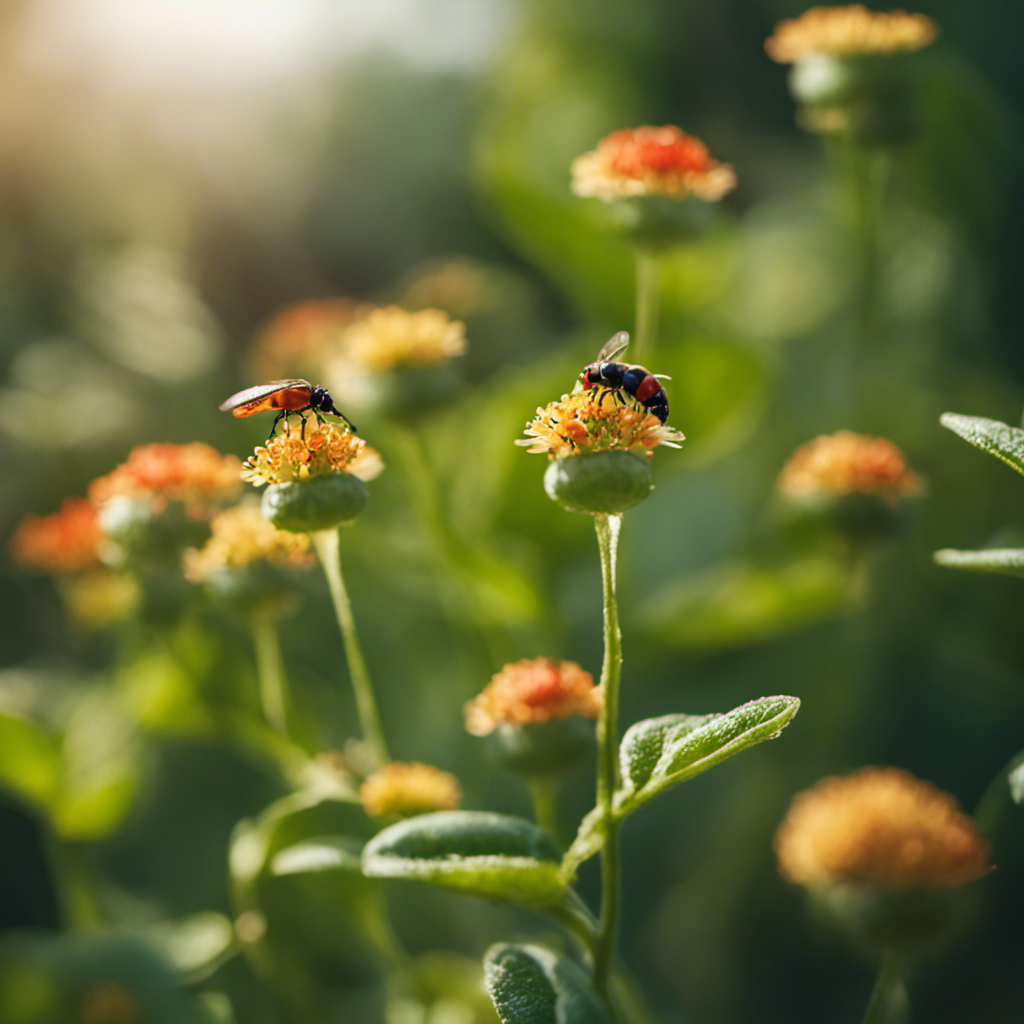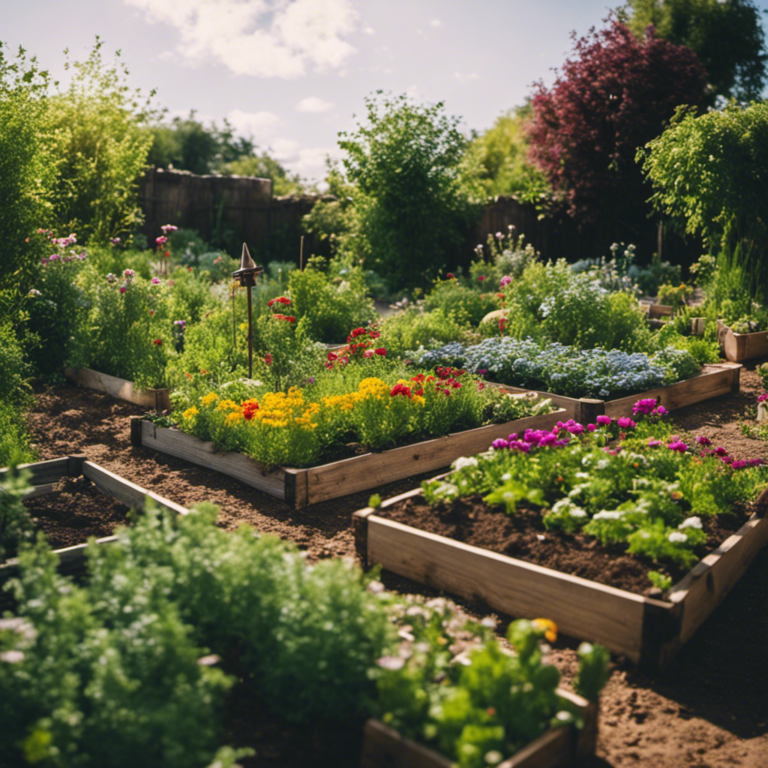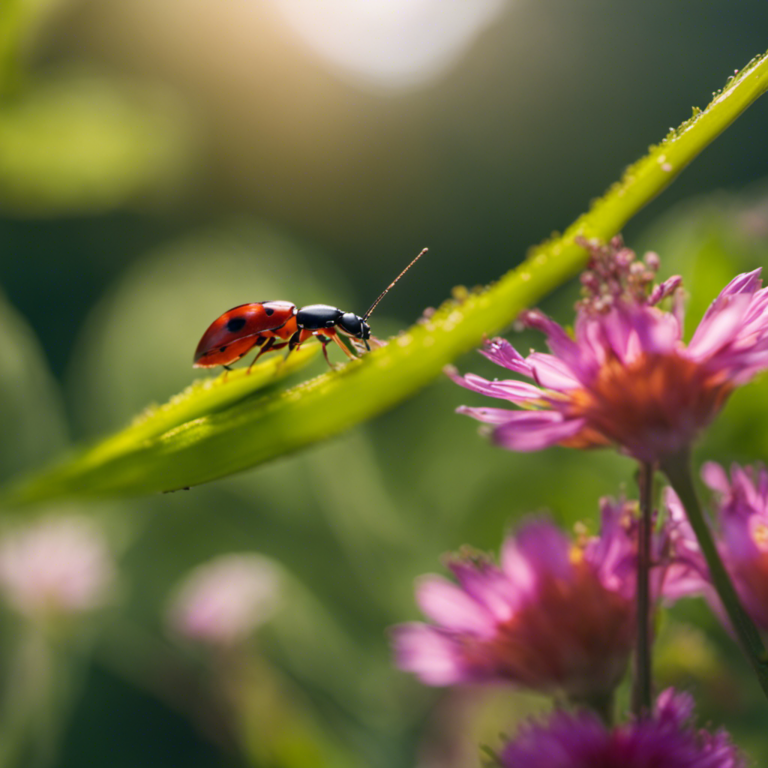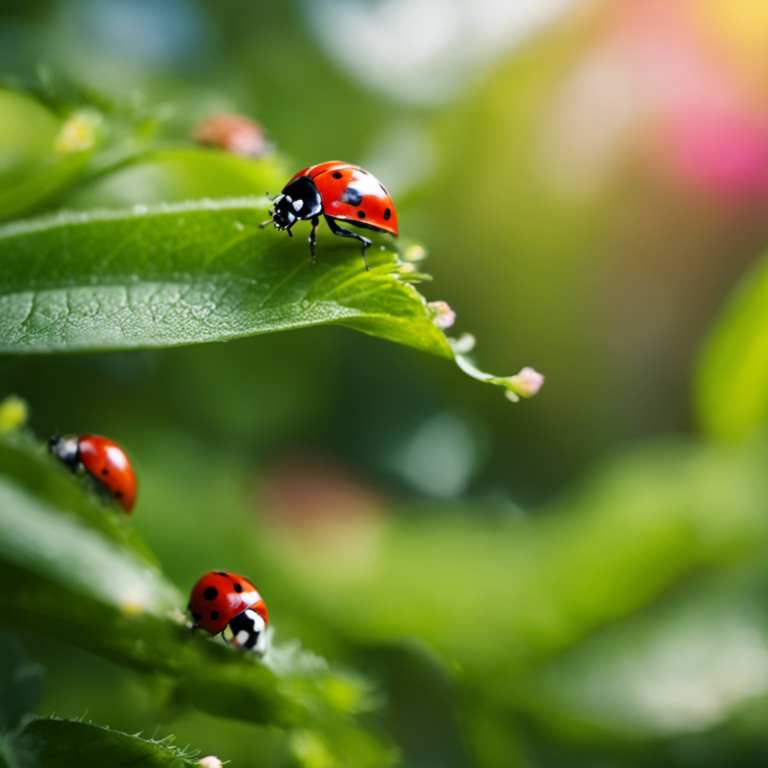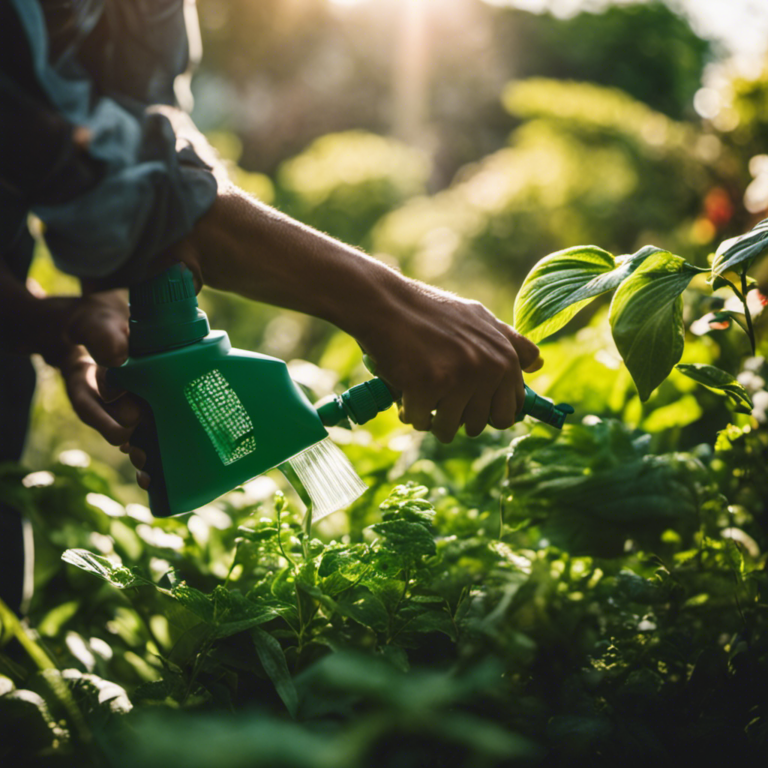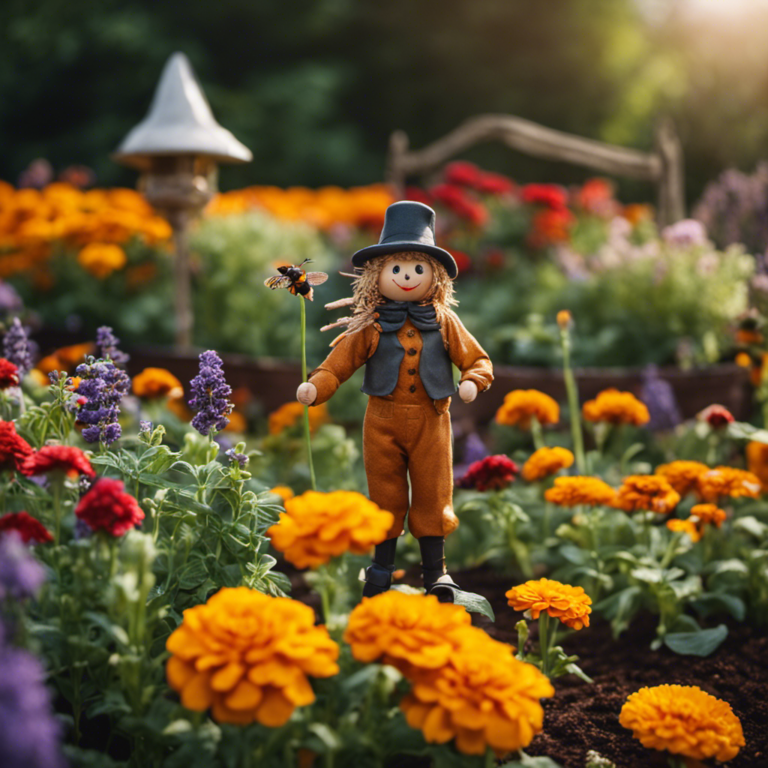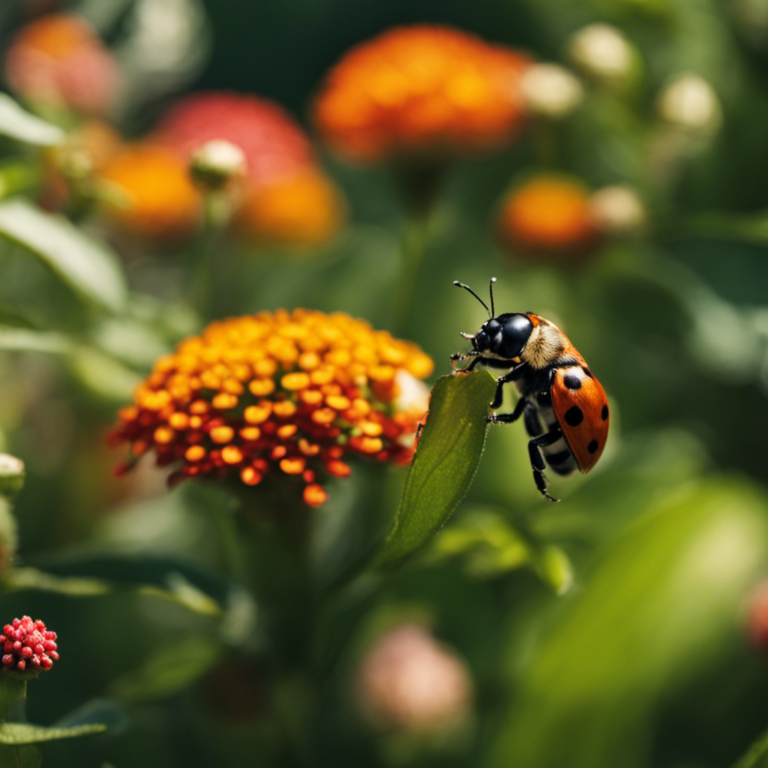Is your garden suffering from pesky pests? No need to worry! You can maintain a thriving garden using natural pest control methods, without relying on harmful chemicals.
Did you know that beneficial insects can significantly reduce pest populations by up to 80%? By attracting these helpful creatures and practicing companion planting, you can create a pest-resistant environment.
Additionally, homemade organic pest sprays, physical barriers, and maintaining healthy soil are effective techniques.
Get ready to reclaim your garden while supporting nature at the same time!
Key Takeaways
Implementing natural methods to control pests in your garden can help create a thriving ecosystem. Did you know that a single ladybug can consume up to 5,000 aphids in its lifetime? These beneficial insects, along with companion planting, homemade organic sprays, physical barriers, and maintaining soil health, can effectively control pests without the use of harmful chemicals. By embracing these strategies, you can enjoy a garden that is free from pests and full of life.
Beneficial Insects for Pest Control
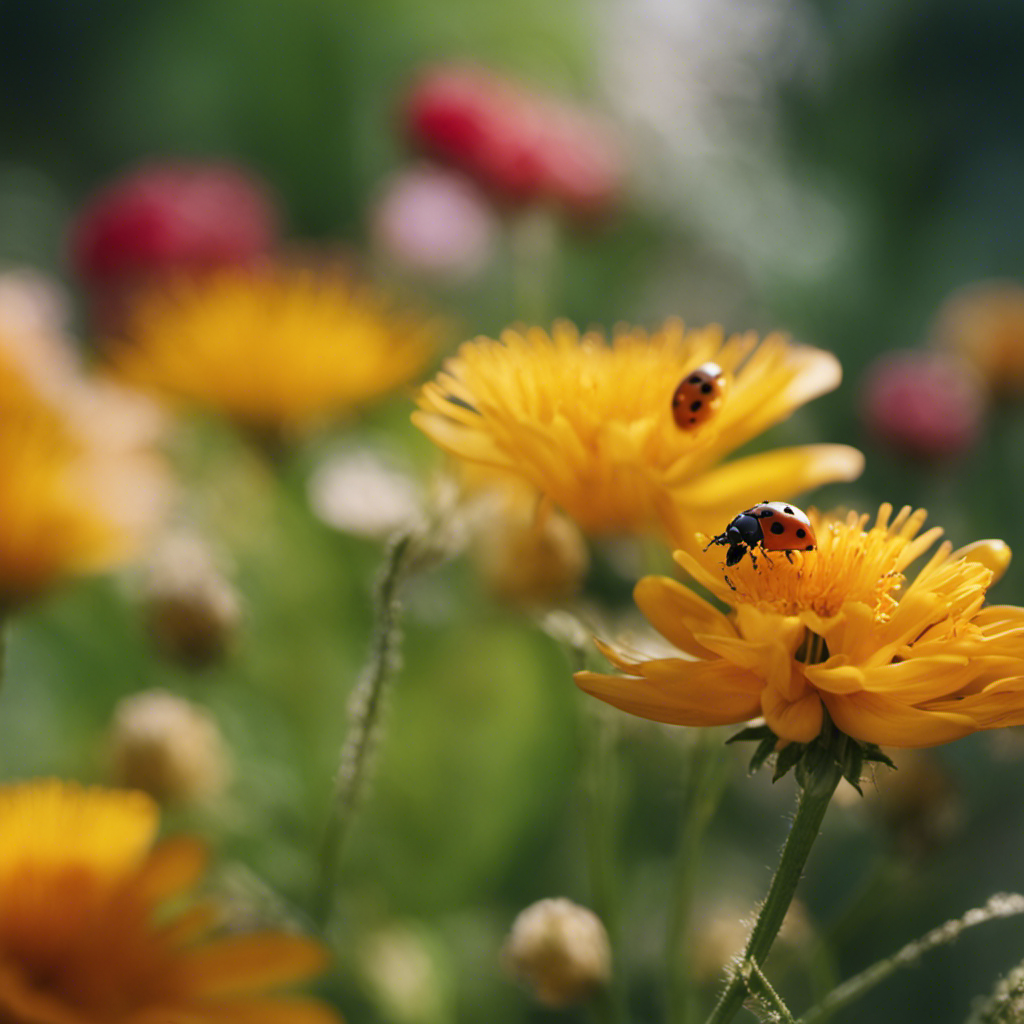
Attracting and relying on a diverse population of beneficial insects is a key strategy for effectively controlling pests in your garden.
Integrated pest management emphasizes the use of natural predators and parasites to keep pest populations in check, reducing the need for chemical pesticides.
One effective way to attract beneficial insects is by planting a variety of flowering plants that provide nectar and pollen. These plants not only attract pollinators like bees and butterflies but also beneficial insects such as ladybugs, lacewings, and hoverflies.
Another important strategy is to provide shelter and nesting sites for beneficial insects by incorporating features like hedgerows, insect hotels, and perennial plants.
Companion Planting Strategies
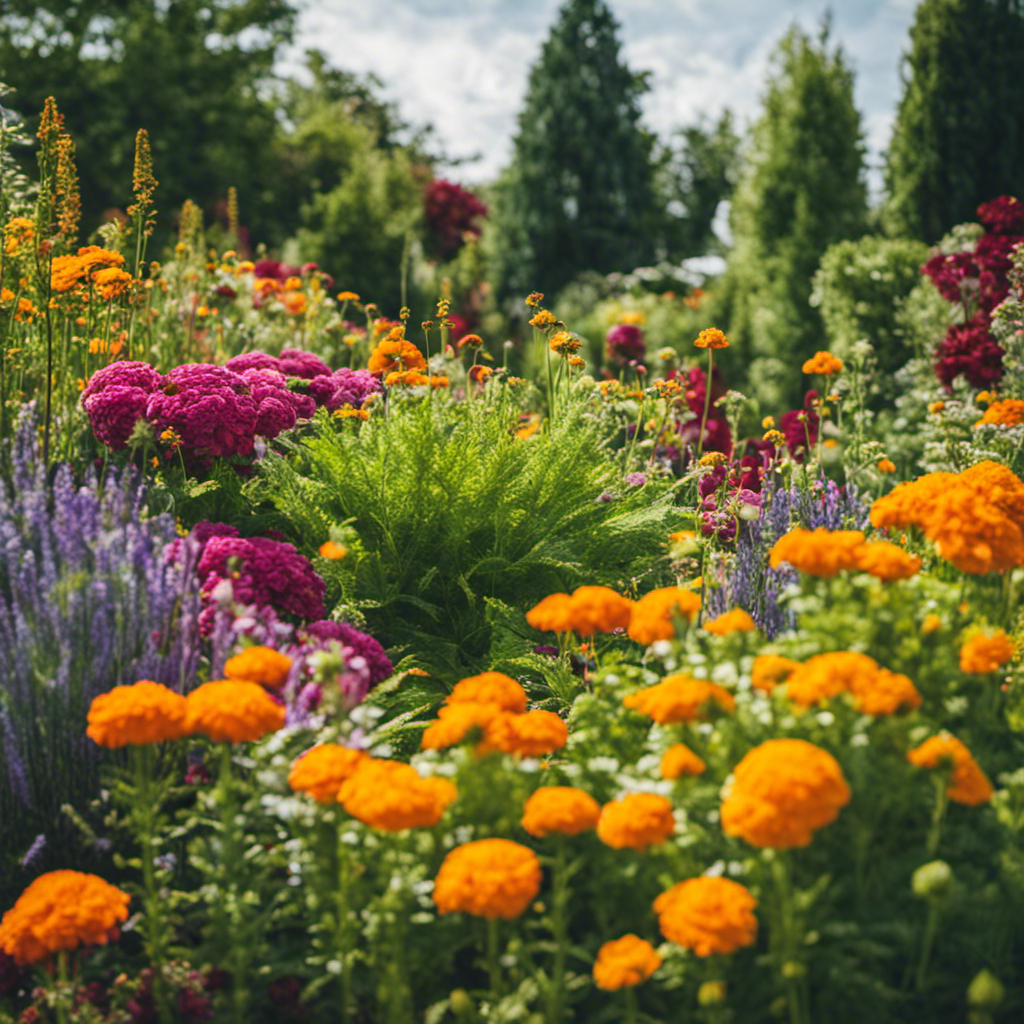
Using companion planting techniques is a great way to attract beneficial insects, maintain a thriving garden, and naturally control pests. Companion planting involves strategically planting different species of plants together to create a mutually beneficial relationship.
This can be accomplished through intercropping, which means planting different crops close to each other, or by creating plant guilds, which are groups of plants that support one another’s growth and repel pests. Intercropping helps increase biodiversity in the garden, attracting a wider range of beneficial insects and reducing the spread of diseases.
Plant guilds, on the other hand, create a balanced ecosystem where plants support each other’s growth and health. For example, planting marigolds near tomatoes can repel harmful insects, while herbs like basil or mint can deter pests and attract beneficial insects.
Homemade Organic Pest Sprays
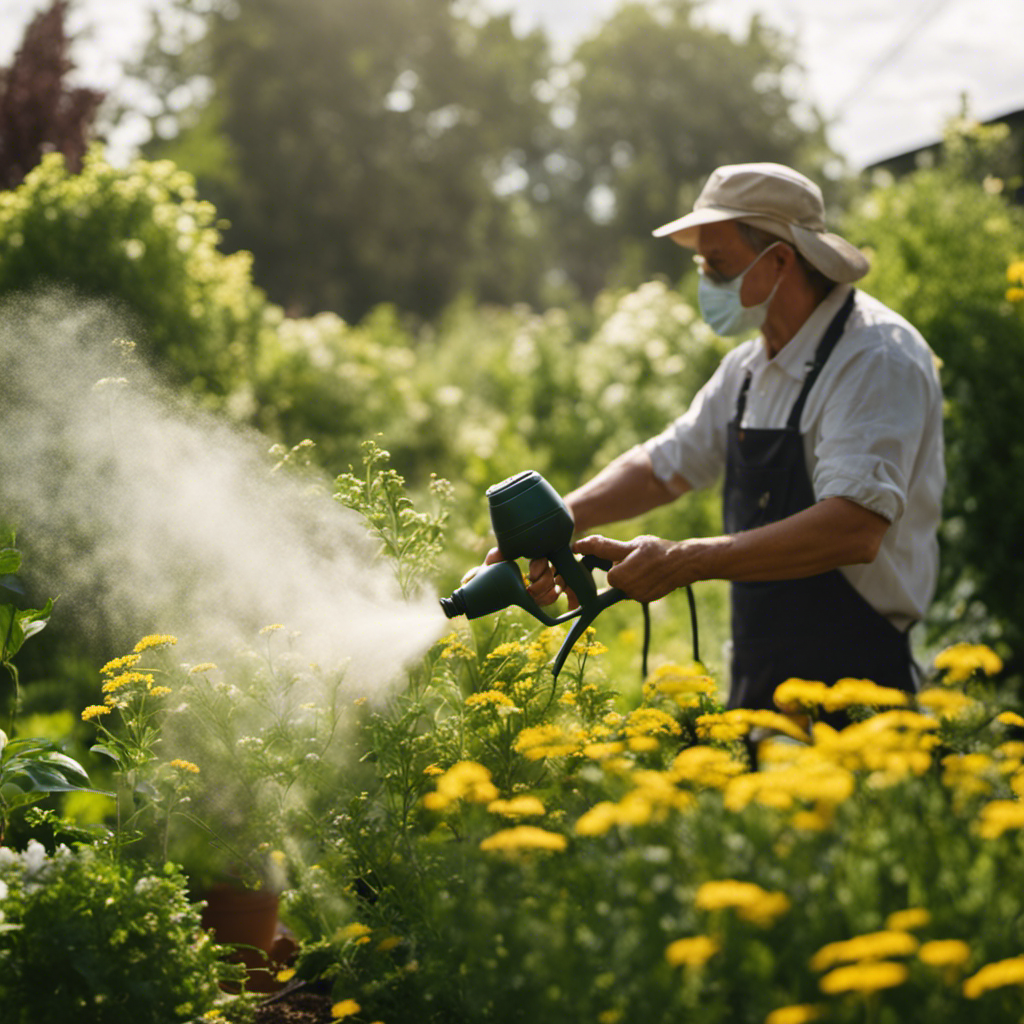
Make your own homemade organic pest sprays to effectively control pests in your garden. These natural pest repellents aren’t only safe for your plants but also for the environment.
Here are four essential oil sprays that you can easily make at home:
-
Neem oil spray: Mix 1 tablespoon of neem oil with 1 quart of warm water and a few drops of liquid dish soap. Spray this mixture on your plants to repel aphids, mites, and other common garden pests.
-
Garlic spray: Crush a few cloves of garlic and mix them with 1 quart of water. Let it sit overnight, then strain the mixture and add a few drops of dish soap. This spray is effective against insects like beetles, aphids, and caterpillars.
-
Peppermint oil spray: Mix 10 drops of peppermint essential oil with 1 quart of water and a few drops of dish soap. Spray this mixture around your plants to deter ants, spiders, and other unwanted pests.
-
Eucalyptus oil spray: Mix 10 drops of eucalyptus essential oil with 1 quart of water and a few drops of dish soap. This spray is great for repelling mosquitoes, flies, and other flying insects.
Physical Barriers and Traps
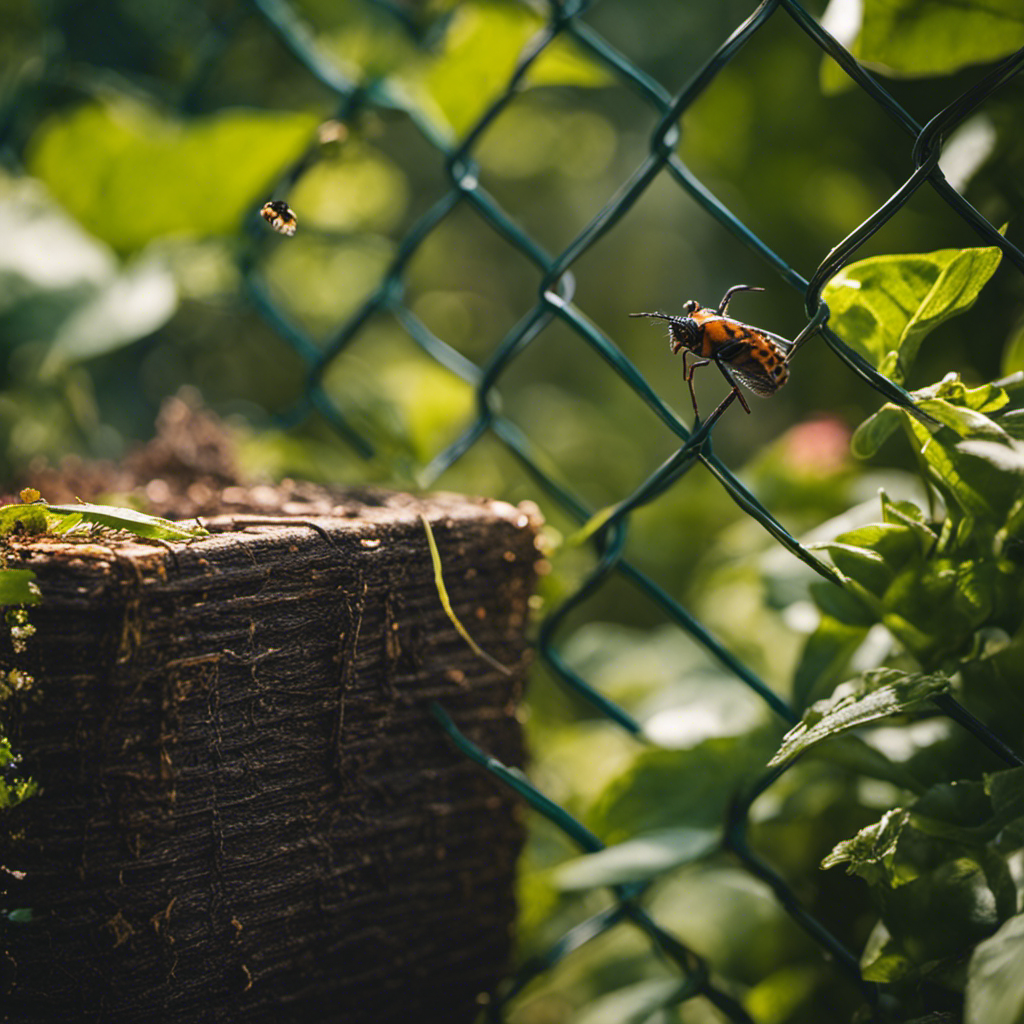
Protecting your garden from pests can be achieved through the use of physical barriers and traps. These methods of pest control and prevention are essential for maintaining the health and vitality of your plants.
One effective barrier is a fence or netting surrounding your garden. This serves as a deterrent for larger pests like rabbits, deer, and birds. It’s important to ensure that the mesh of the netting is small enough to prevent smaller pests, such as insects, from entering.
Another option is the use of row covers, which are lightweight and breathable fabrics that can be placed directly over your plants. These covers act as a physical barrier, keeping pests out while still allowing sunlight, air, and water to reach your plants.
Traps are also effective in catching and eliminating pests. Sticky traps, for example, are coated with a substance that insects get stuck to upon contact. These traps can be hung near plants or placed on the ground to capture crawling pests.
Soil Health for Natural Pest Resistance
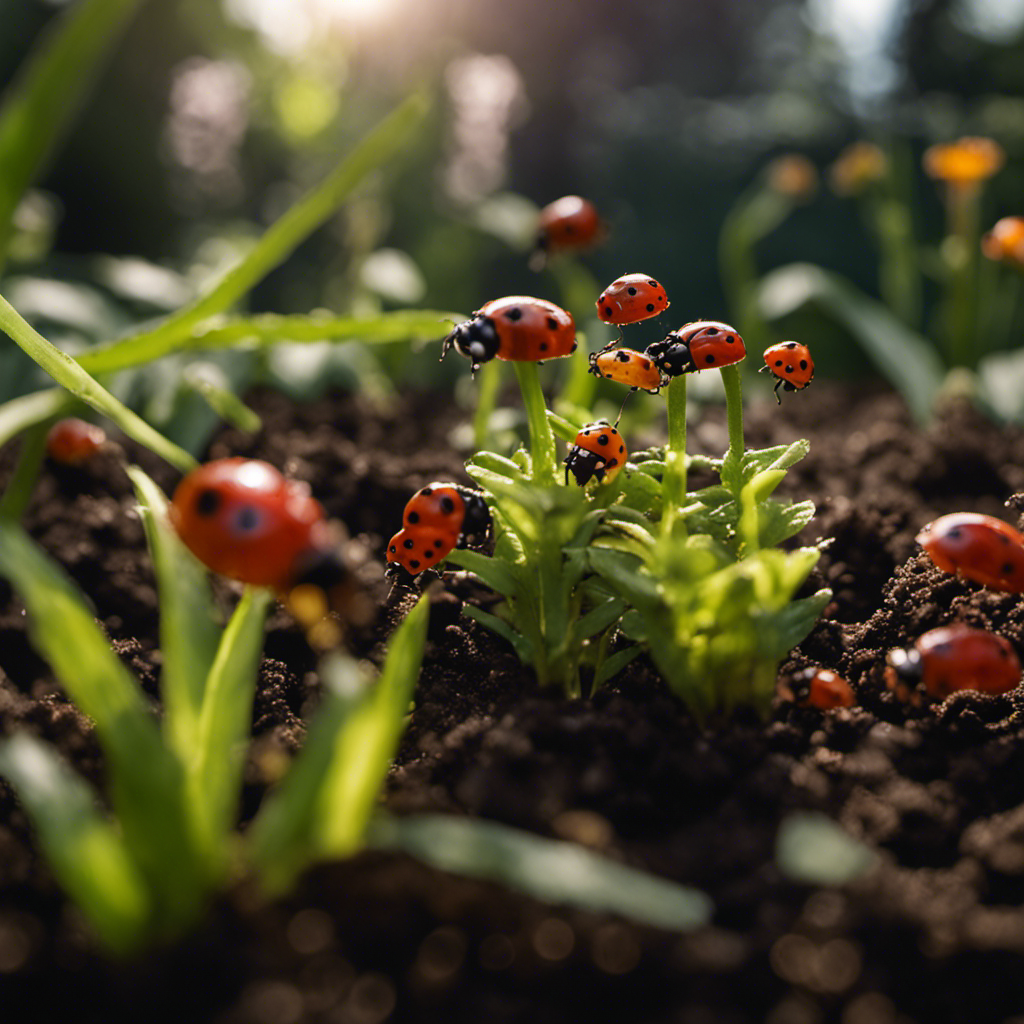
Promoting Natural Pest Resistance Through Soil Health
To naturally deter pests in your garden, it’s crucial to prioritize the health of your soil. A healthy soil serves as a strong foundation for plant growth, making them less vulnerable to pest attacks.
Here are four key practices to enhance soil health and promote natural pest resistance:
-
Utilize cover crops: Planting cover crops like clover or buckwheat can improve soil fertility, prevent erosion, and suppress weed growth. These crops also attract beneficial insects that prey on garden pests, providing a natural form of pest control.
-
Practice crop rotation: Rotating your crops from year to year disrupts pest cycles and reduces the risk of infestations. By altering the habitat of pests, it becomes harder for them to establish and multiply.
-
Incorporate organic matter: Adding organic matter such as compost or well-rotted manure improves soil structure and fertility. Nutrient-rich soil supports robust plant growth and enables plants to withstand pest attacks.
-
Maintain proper soil moisture: Consistently watering your garden to maintain optimal soil moisture levels prevents plant stress and reduces their attractiveness to pests. Deep and infrequent watering allows the soil to slightly dry out between waterings.
Conclusion
Implementing natural pest control methods in your garden can help create a vibrant and thriving ecosystem.
Did you know that a single ladybug can consume up to 5,000 aphids in its lifetime?
These beneficial insects, along with companion planting, homemade organic sprays, physical barriers, and maintaining soil health, can effectively control pests without the use of harmful chemicals.
By embracing these strategies, you can enjoy a pest-free garden that flourishes with life.
